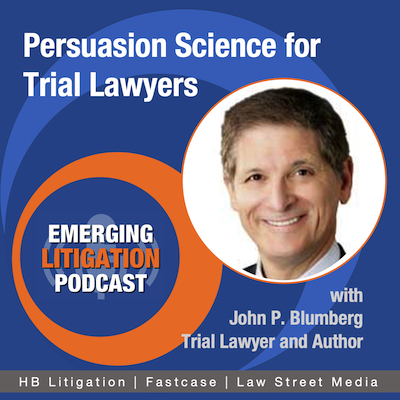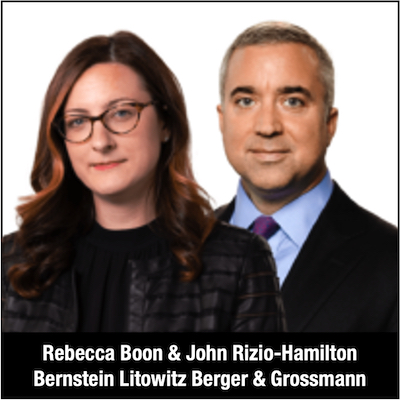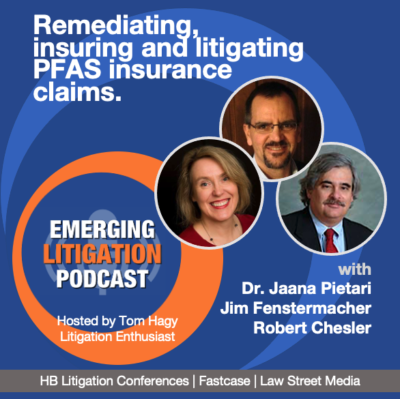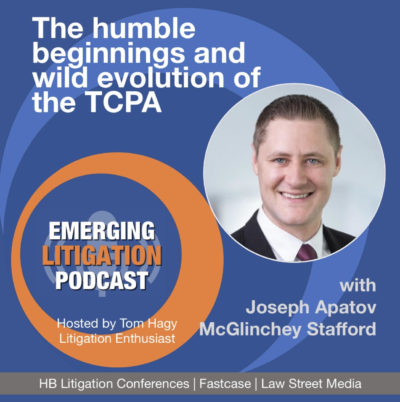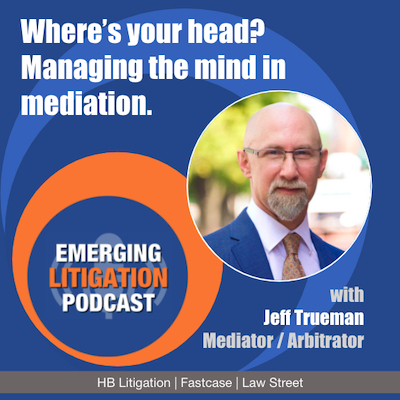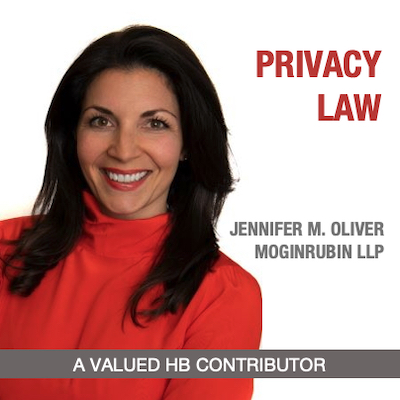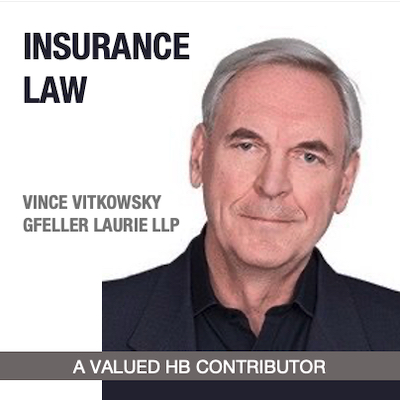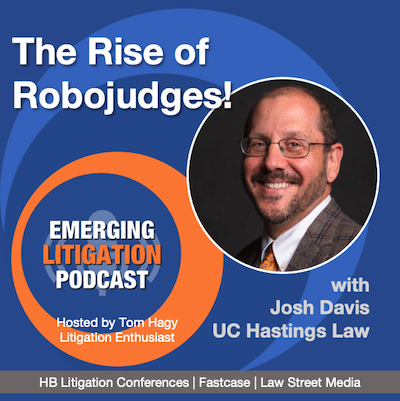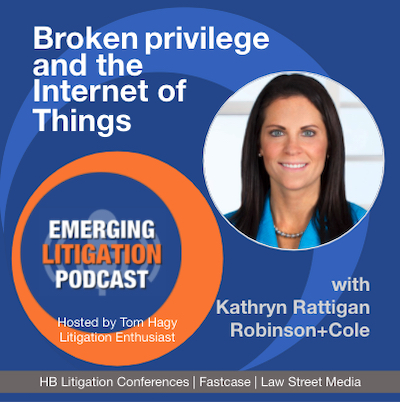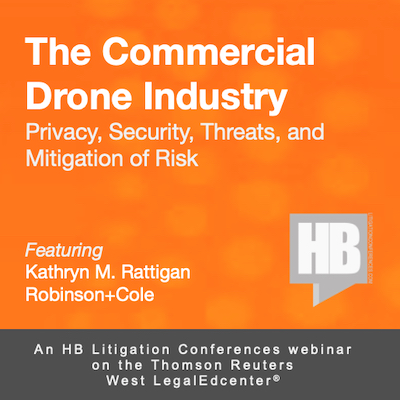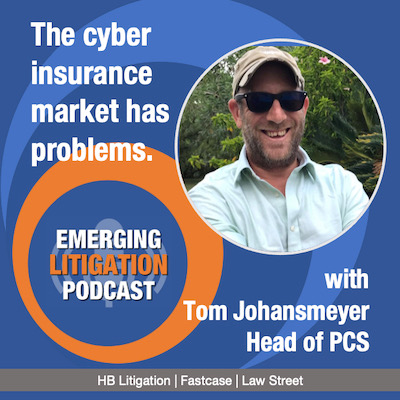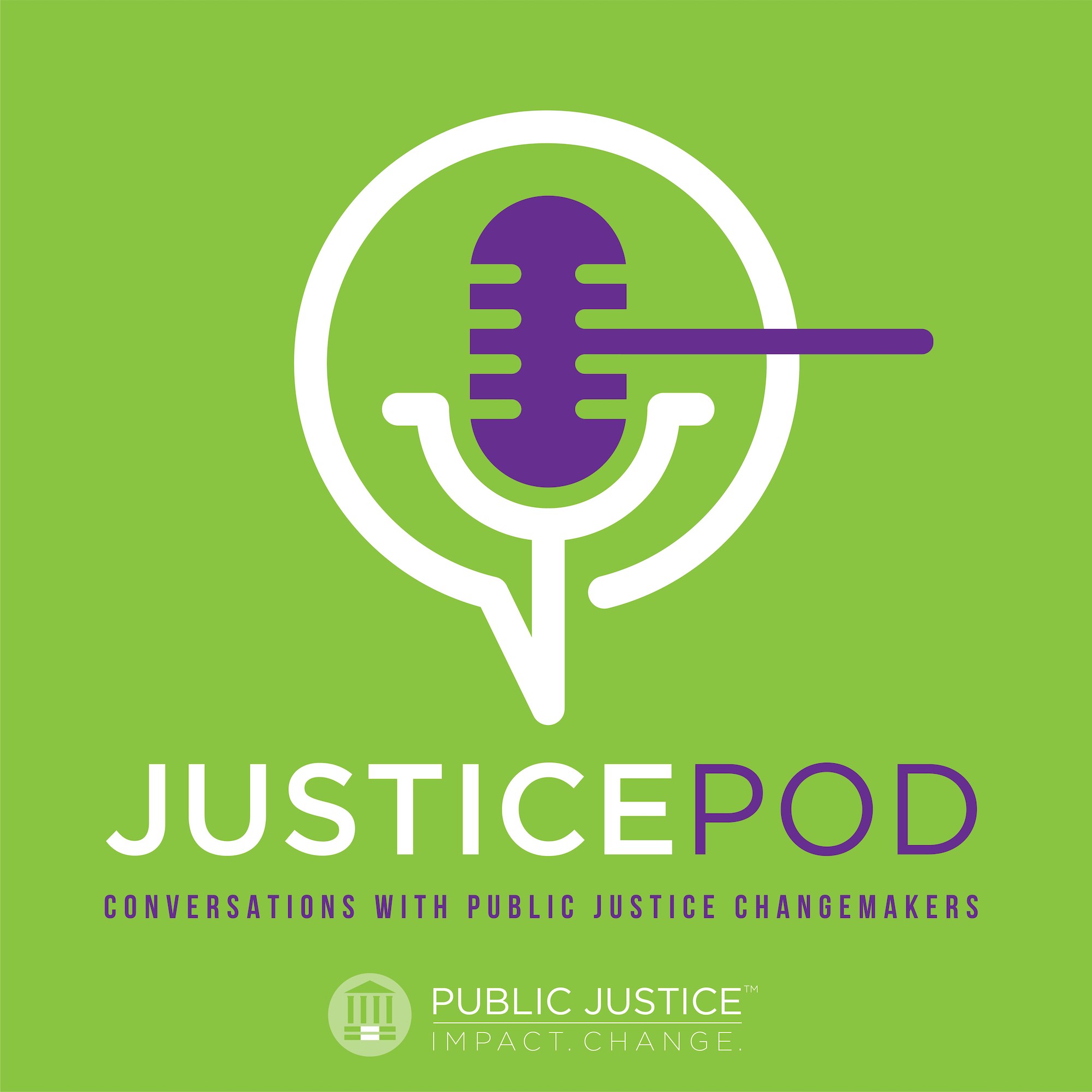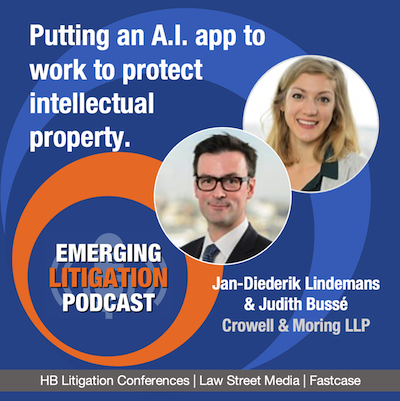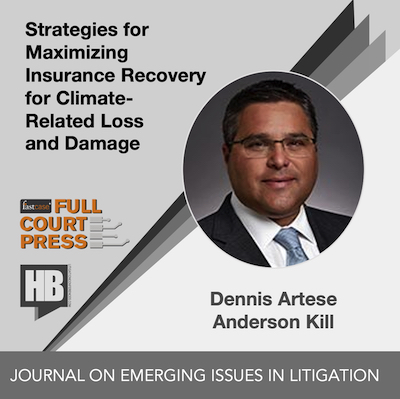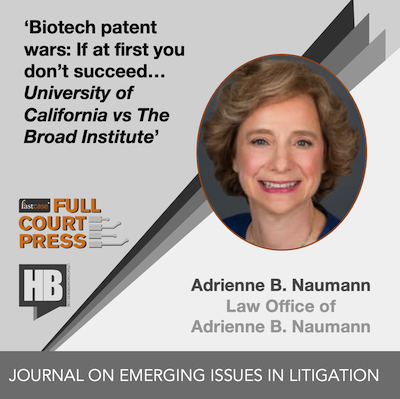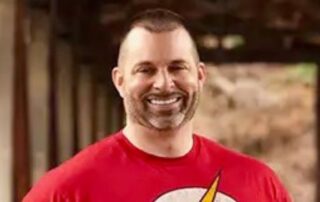Emerging Litigation Podcast
The Awesome Potential of Advanced Dispute Resolution
In this episode we talk to Rich Lee, founder of New Era ADR, about hot topics and issues involving what is referred to here as "Advanced Dispute Resolution", or ADR. What are the benefits of ADR? How can ADR enhance Access to Justice? How does employing ADR impact Accessibility, Diversity, and the Environment? What is the influence of Gamesmanship in legal proceedings? As Rich explains, "ADR is about rethinking litigation to make it more efficient for both sides. Get parties to be pragmatic, get to the point, present their arguments, and get it resolved". Listen now to learn more!
Applying Business Strategy to Your Law Firm
In this episode of the Emerging Litigation Podcast, we hear from James Grant about looking strategically at your law firm as you would any business and explore one litigation firm’s journey through that transformative process. As he argues, "lawyers must learn AI now or else watch their competition fly past them in operational efficiency, customer service, and client retention". Listen to learn more!
PFAS Regulation, Litigation, and Differentiation
In this episode, we give you some history of the PFAS compounds, discuss some of their important differences, review what litigation we're seeing (including the various claims and defenses), note what we can learn from recent settlement structures, forecast the impact of any new regulation, and predict what litigation might be next. Listen to our guests David Marmins and Morgan Harrison of Arnall Golden Gregory LLP.
A Shameless Plug for Our Content Services
Your content marketing is everything you’ve ever dreamed of. Right?

Critical Legal Content was founded by Tom Hagy, former Editor & Publisher of Mealey’s Litigation Reports and VP at LexisNexis, founder of HB, current litigation podcaster and editor-in-chief. CLC’s mission is to help smaller firms and service providers not only create content — blogs, articles, papers, webinars, podcasts (like the stuff on this site) — but also to get it out there. How? Via social media, this website, your website, and potential via our podcast and journal which we publish in collaboration with vLex Fastcase and Law Street Media. The goal is to attract readers and dizzy them with your brilliance.
*Inspired by actual events.
Create content like a real legal publisher.
Emerging Litigation Journal
AI Litigation Risks in Employment by Gerald L. Maatman Jr., Alex W. Karasik, and George J. Schaller
The authors, Gerald L. Maatman Jr., Alex W. Karasik, and George J. Schaller analyze two novel AI lawsuits and highlight recent governmental guidance related to AI use in the employment context and the implications of possible discriminatory conduct stemming from the use of AI tools. "AI is here to stay," they write. "Whether companies choose AI technology for any 'employment decision,' companies must keep themselves up to date on any issued guidance and must actively monitor AI tools to prevent any possible discriminatory outputs."
Protecting Policyholders as AI Is Developed for Insurance Claims Handling by Marshall Gilinsky and Madison Marlow
The authors, Marshall Gilinsky and Madison Marlow discuss the integration of artificial intelligence (AI) within the insurance industry and outline the potential consequences of diminished human oversight in AI-driven insurance claims handling, highlighting the need for watchdogs and regulators to demand that AI tools under development afford “explainability” and protect policyholder rights.
Adapting to AI: Taking a Practical Approach to Governance by Blair Robinson
The author, Blair Robinson of Robinson+Cole discusses the need for a practical AI governance framework that businesses must embrace to harness AI’s transformative promise responsibly, encompassing a diligent, strategic, and technically nuanced governance approach. As she notes, "taking a methodical and use-case-driven approach may allow a business to embrace the transformative power of AI in critical areas while managing “wild west”-style use by employees without governance approval".
HB Webinars on CeriFi LegalEdge
Complex Post-Settlement Liens | CLE Course | Recorded July 26, 2018
[two-fifths-first] Two ways to access this session. Get it direct from HB for just $197 for the video -- audio synced with slides. Or, it's included in your West LegalEdcenter (Thomson Reuters) subscription. ____________________ Speakers Franklin Solomon Solomon Law Firm Brett Newman Lien Resolution Group [/two-fifths-first] [three-fifths] Complex Post-Settlement Liens: Beyond Traditional Medicare and Medicaid Issues Take this highly practical course with two deeply experienced practitioners who share insights on issues that impact the cases on your desk today. Learn about the newest case law, agency positions and litigation tactics affecting health and disability plan reimbursement claims, including how to protect your clients and your practice in this rapidly developing area. Our speakers discuss: Medicare Advantage Plans Federal Employees Health Benefits Act (FEHBA) Plans Employee Retirement Income Security Act (ERISA) Claims Medicare set-asides TRICARE Veterans Administration Claims Speaker Bios Franklin P. Solomon | Solomon Law Firm Franklin Solomon has a nationwide practice focused on evaluation, litigation and resolution of healthcare lien/reimbursement claims. He represents personal injury victims and their attorneys in defending against claims by health plans and government benefits programs seeking payment out of tort recoveries. Most recently, he was plaintiffs’ counsel in two federal appellate court cases decided last summer: Wurtz v. The Rawlings Company, ___ F.3d ___, (2d Cir. 2014), a class action challenging New York insurers’ reimbursement claims against their insureds, and Taransky v. Sec. U.S. Dept. of Health & Human Svcs., ___ F.3d ___ (3d Cir. 2014), a class action challenging Medicare’s claims for reimbursement out of New Jersey tort recoveries. Brett Newman | The Lien Resolution Group Brett Newman is known nationally by plaintiff attorneys for his expertise on claims avoidance and reduction. Recognizing the ever-growing nature of lien resolution and the ever-increasing associated liability, Brett established The Lien Resolution Group and The Newman Structured Settlement Group to assist both individual claimants of personal injury lawsuits and mass [...]

